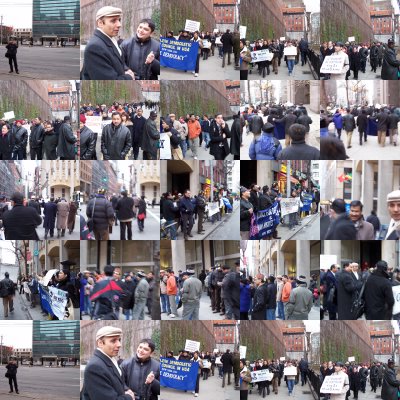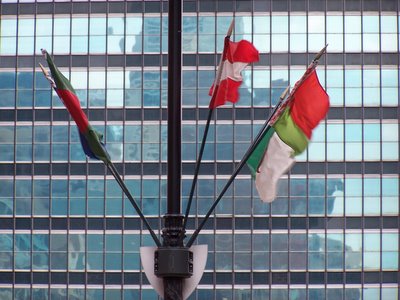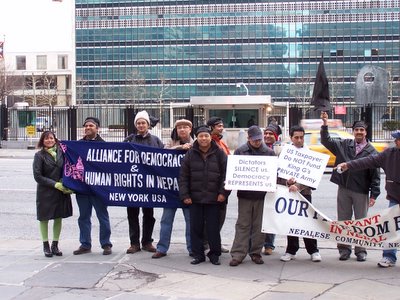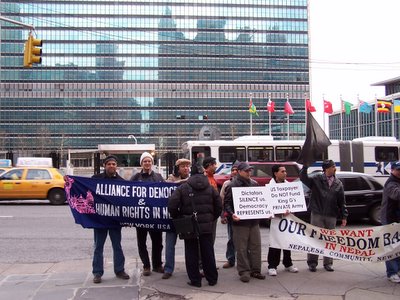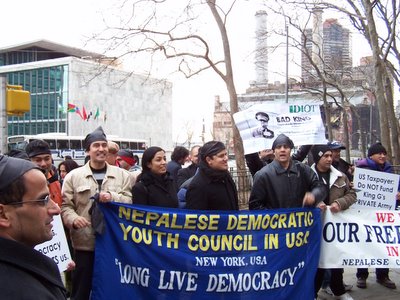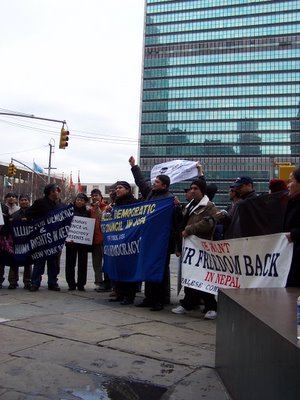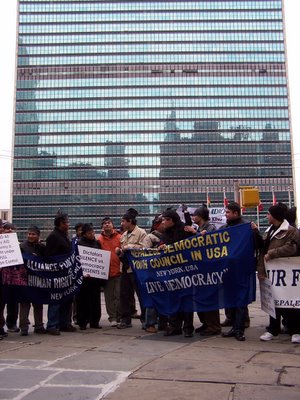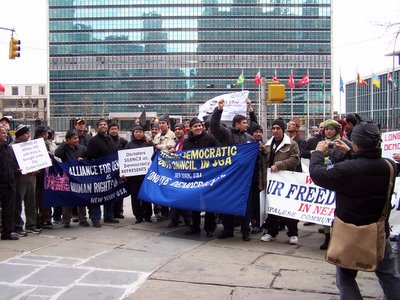 Treason - Wikipedia, the free encyclopedia In law, treason is the crime of disloyalty to one's nation.
Treason - Wikipedia, the free encyclopedia In law, treason is the crime of disloyalty to one's nation.It is the basic democratic assumption that the people are the only source of state power. There is and can be no other. Any person, group or institution that does not have the people as the source of its power is illegitimate and illegal, plain and simple. Power exercised by them is illegal, and should never ever have been exercised in the first place. They have been driving around a stolen car.
On the other hand those who derive their power from the people, or might have derived their power from the people in the past, and hope to do so in the future, but do not currently because the individuals, groups and institutions that do not derive their power from the people, through brute force, have had them marginalized, are the legitimate represenatatives of the people and their power, and hence any attacks on their person, their liberty, their property, and their basic rights are an attack on the state itself, for that state may only belong to the people, and so all such attacks are acts of treason, and hence liable to legal punishment to amount to deprivation of liberty and property on the part of the said individuals.
As soon as the state is legitimately returned to the people and their rightful representatives, either through a movement, a revolution or through an international recognition of a parallel government, or a combination of one or more of the said elements, it would be the business of first priority for that state to punish the said individuals and groups and cliques within institutions, for a state that does not punish those that might have attacked it in the past will be a state that will possibly invite further attacks upon itself in the future, and that can not be allowed.
Such punishments are also to send out a clear message once and for all that democracy, by definition, is a non-violent exercise, but that democracy, through rule of law, commands the brutest force at its disposal to protect itself from those that might harbor nefarious designs upon its fundamental premises. There can be no bigger act of treason than undermining democracy. National laws should be sufficient to punish the perpetrators. And existing international laws are to be put to service, and new ones designed where they might not exist, for it is unbecoming of the family of nations that are democracies to not recognize the fact that the people are the only source of state power, and that that is true of all countries and all peoples. That is the dormant truth even when they might not be political realities, and when that dormant truth dares to raise its head through mass action by a brave people, it is nothing less than inhuman for the democracies of the world to not extend all possible moral, logistical, political, legal and possibly even military help to bring that dormant, immutable truth to the political ground.
The rightful representatives of a democracy movement therefore have it within their rights to not wait until the illegitimate people in power get convinced to make way, or are physically defeated. They have a right to unilaterally declare a parallel government that all democracies of the world must immediately recognize as the legitimate government.
And when the said country might never have had a democratic constitution, as is the case in Nepal, that parallel government bears responsibility to take the country through elections to a constituent assembly so as to ensure the most democratic possible way to give the country a new constitution.
Non-violence is not a defeatist message where you ask a people and their leaders to get beat up with patience. Non-violence is to say rule of law is more powerful than any physical weapon ever designed. It is to say those who stand by democracy stand by rule of law, and through the force of law they can hope to punish those who deprive a people of democracy. It is that threat of punishment that should deter the enemies of democracy, and when failing to do so, punish them, like laws designed to punish muder do. The non-violent agitators for democracy deserve to feel the power, so they can collect the evidence as they wage their brave fights for democracy. Collecting evidence for future legal redress should feel like revolutionary acts as they are.
Soldiers of democracy suffer jail time and worse. It would not be fair for the enemies of democracy to go scot free once democracy is achieved. Democracy is not weakness, and autocracy is not strength.
A movement for democracy in the 21st century should not feel as desperate as it might have felt 200 years back. Today it should feel as near painless as modern surgery. Otherwise we give ammunition to those who preach violent ways.
What is happening in Nepal is of global import, and all democracies of the world need to feel intimately involved for the democracy movement in Nepal should be the freshest reminder of what they themselves might have gone through as a people to achieve the democracy that they now enjoy. In expressing solidarity to the democracy movement in Nepal, the democracies of the world pay homage to their own ancestors who gave their all to the cause. Let it be clear in their heads and their hearts.
Democracy - Wikipedia, the free encyclopediaDemocracy For AmericaMoveOn.org: Democracy in ActionNational Endowment for DemocracyAmerican Revolution - Wikipedia, the free encyclopediaFrench Revolution - Wikipedia, the free encyclopediaIndian Independence Movement - Wikipedia, the free encyclopedia

